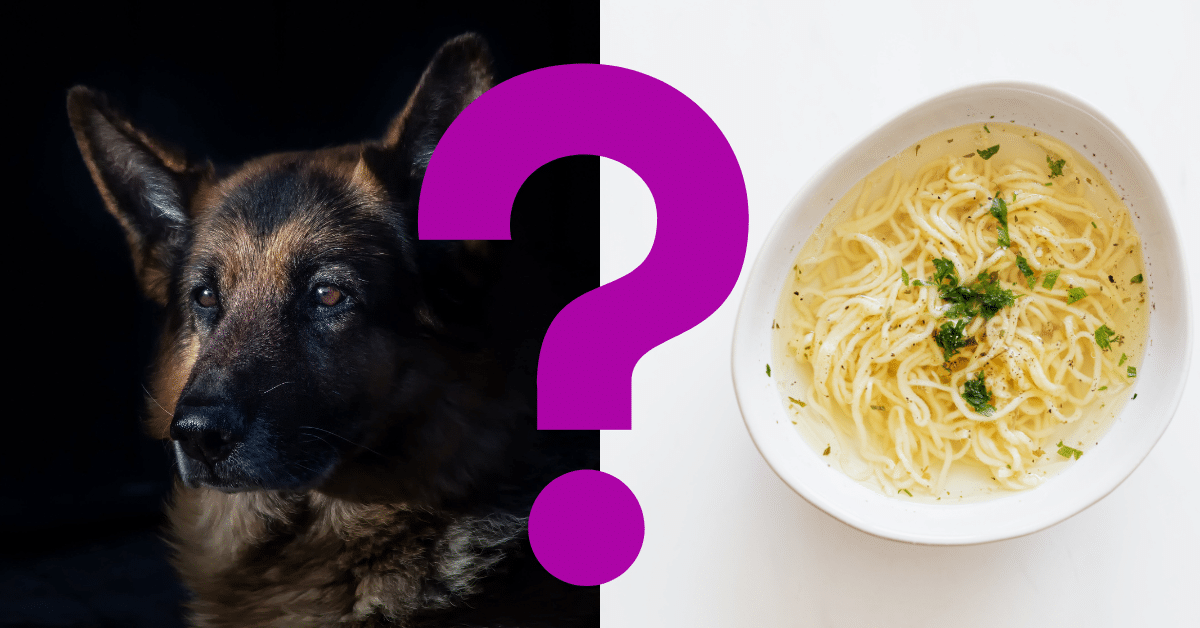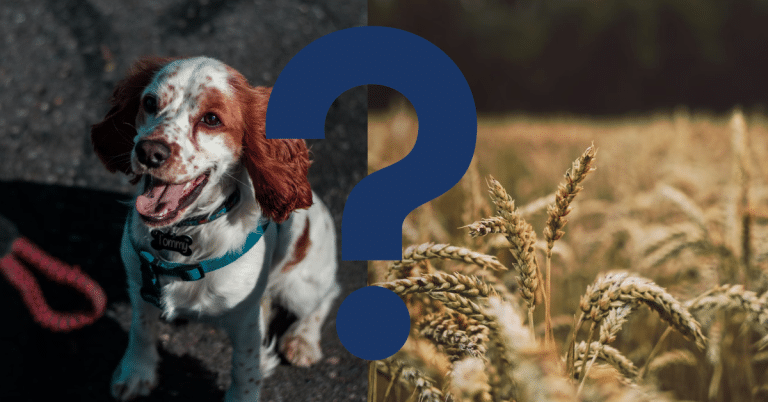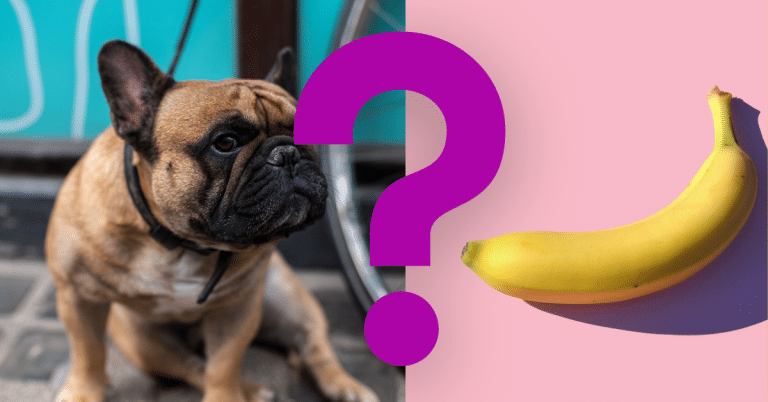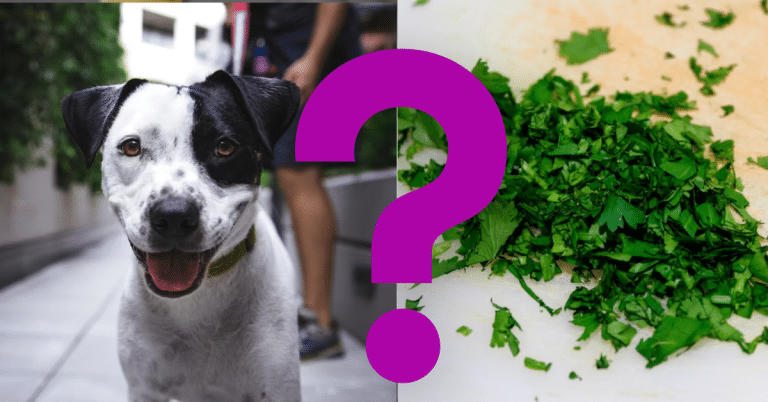Can Dogs Eat Chicken Noodle Soup? A Vet’s Opinion

Chicken noodle soup is a comfort soup comprised of chicken, noodles, vegetables, and frequently seasoned stock. But can you feed Chicken noodle soup to your dog?
In moderation, plain, unseasoned chicken and noodles are generally safe for dogs. However, avoid giving children soup that contains onions, garlic, spices, or a high sodium level, as these might be detrimental. Always check with a veterinarian before giving your dog any human food to ensure it is safe and appropriate for their diet.
Benefits of Chicken noodle soup for dogs
When made and given correctly, chicken noodle soup can benefit dogs. It is critical to emphasize that chicken noodle soup should be provided to dogs in moderation and without dangerous additives. Here are some potential advantages and considerations:
Source of Protein
Chicken, the significant component in chicken noodle soup, is a beautiful source of lean protein essential for muscle maintenance and overall health in dogs.
Hydration
The broth in chicken noodle soup can help dogs stay hydrated, particularly if they have a low appetite or are recovering from an illness.
Easy to Digest
Because boiled chicken and simple noodles are easily digestible for dogs, chicken noodle soup is a good alternative for dogs with digestive issues.
Nutrient Intake
Depending on the veggies used, chicken noodle soup can supply vitamins and minerals that help dogs maintain a healthy diet.
Warmth and comfort
Serving heated chicken noodle soup can bring comfort and warmth, especially during cold weather or when a dog is sick.
Consult your veterinarian before introducing human food, including chicken noodle soup, into your dog’s diet. They may advise you based on your dog’s demands, health conditions, and dietary needs to ensure it’s safe and acceptable.

How to safely give chicken noodle soup to dogs
If you want to share chicken noodle soup with your dog, you must make it in a dog-safe manner. Remember that not all components of chicken noodle soup are safe for dogs. Therefore, cautious preparation is required. Here’s a step-by-step guide to securely feeding chicken noodle soup to your pet:
Selection of Ingredients
- Choose simple chicken flesh free of seasoning, bones, and skin. Make sure it’s properly cooked and free of any additions or seasoning.
- Choose plain noodles free of salt, flavor, and other potentially dangerous substances for dogs. Choose noodles that are simple, plain, and easy to digest.
Avoid Harmful Ingredients
Include no onions, garlic, spices, herbs, or other seasonings. These can be poisonous to dogs and cause digestive disorders and more severe health issues.
Make a Simple Chicken Broth
- To prepare a simple chicken broth, boil chicken flesh in water. Use a water-to-chicken ratio that avoids excessive sodium concentration.
- Add no seasonings, salt, or other flavorings that could hurt your dog.
Simple Noodles with Vegetables
- Separately, cook plain noodles without any salt or flavor. Once cooked, combine a tiny amount with the chicken broth.
- If you incorporate vegetables, make sure they are safe for dogs. Carrots and green beans are two standard safe selections. Cook them without spice or oil and serve in tiny portions.
- Allow it to cool completely before serving it in small portions.
- Allow the soup to cool completely before offering it to your dog.
- To avoid overfeeding or upsetting your dog’s tummy, serve tiny servings as a treat or supper.
Keep an eye on your dog’s reaction
- After drinking the soup, watch for any signs of allergic reactions, digestive difficulties, or harmful consequences in your dog. If you observe any negative responses, stop giving the chicken noodle soup.
Consult a veterinarian
- Before introducing new items into your dog’s diet, consult your veterinarian. They may advise you on your dog’s appropriateness and portion amounts based on their demands and health conditions.
While chicken noodle soup might be a tasty treat for your dog, it should not be used instead of their usual, nutritionally balanced dog food. When giving your dog human food, always prioritize their safety and well-being.
Will Chicken noodle soup make a dog sick?
Chicken noodle soup can ill a dog, mainly if it contains dangerous substances or is made incorrectly. If chicken noodle soup is provided to dogs in a hazardous manner, the following illnesses or problems may occur:
Digestive Discomfort
Spices, onions, garlic, and an overabundance of spice in the soup can irritate a dog’s digestive tract, resulting in vomiting, diarrhea, abdominal pain, or gastrointestinal distress.
Onion and garlic toxicity
Onions and garlic are poisonous to dogs and can cause hemolytic anemia, a disorder that affects red blood cells and causes symptoms such as lethargy, weakness, vomiting, and diarrhea.
Toxicity from Salt
Excess sodium (salt) in the soup can cause salt poisoning in dogs, resulting in increased thirst, vomiting, diarrhea, tremors, seizures, and, in extreme cases, renal damage.
Reactions to Allergens
Certain chemicals in chicken noodle soup might cause allergic responses in dogs, such as itching, rashes, swelling, difficulty breathing, or gastrointestinal difficulties.
Choking Risk
If the noodles or chicken pieces are excessively large or not properly cooked, they may cause respiratory discomfort or choking in the dog.
Problems with High-Fat Content
If the soup has high-fat ingredients, the dog’s inability to handle a high-fat diet may result in pancreatitis or other gastrointestinal disorders.
Gastroenteritis
Dogs can get gastroenteritis by eating defective or infected chicken noodle soup, which causes vomiting, diarrhea, dehydration, and stomach pain.
Blockage of the Small Intestine
Accidental ingestion of noodles or bones in the soup can cause intestinal blockage, causing severe discomfort, vomiting, diarrhea, and even requiring surgical intervention.
To avoid these potential health risks, ensure your dog’s chicken noodle soup is prepared safely and dog-friendly, with no dangerous additives, and correctly portioned. Always consult your veterinarian before giving your dog any human food to ensure it is safe and appropriate for their needs.
Can Dogs Eat Chicken Noodle Soup Variations?
Dogs can consume a modified and dog-friendly version of chicken noodle soup safely. Here’s a simple dog-friendly recipe:
Ingredients:
- Cooked chicken breast with no spice, skin, or bones
- Noodles cooked without spice or salt
- Cooked and sliced carrots
- Cooked and sliced green beans
- Water
Preparation:
- Cook the chicken entirely before chopping it into small, manageable pieces.
- Cook the noodles as directed on the package, using plain water with no spice or salt.
- Cook until the carrots and green beans are tender and easily mashed.
Ingredients To Combine:
- Combine the cooked chicken, noodles, carrots, and green beans in appropriate portions for your dog in a mixing bowl.
Serve Your Dog:
- Before serving your dog, allow the mixture to cool to room temperature.
Ensure the ingredients are simple and free of potentially dangerous additives such as onions, garlic, spices, or excessive salt. Always observe your dog’s reaction after serving this chicken noodle soup variant to ensure it agrees with their digestive system.
Remember that chicken noodle soup should be considered a treat or an occasional addition to your dog’s diet rather than replacing their usual, nutritionally balanced dog food. If you have any worries or concerns about giving your dog chicken noodle soup, see your veterinarian for specialized advice based on your dog’s needs and health condition.

Vet’s Summary
In conclusion, when appropriately prepared, chicken noodle soup can be a safe and helpful supplement to a dog’s diet. Simple, cooked chicken and noodles without hazardous components such as onions, garlic, or excessive salt, along with simple veggies, can provide protein, hydration, and ease of digestion for dogs. However, it is critical to check portion proportions and consult a veterinarian to verify that the soup meets the dog’s nutritional needs and overall well-being.
Furthermore, whether or not you incorporate chicken noodle soup into your dog’s food, probiotic pills are strongly advised. Probiotics can help your dog’s digestive health by maintaining healthy gut flora and assisting in nutrient digestion and absorption. They can be accommodating when introducing new meals or making dietary changes to help your pet maintain a balanced digestive tract. Consult your veterinarian to select the best probiotic supplement and dosage for your dog’s health needs.
Videos to watch
If you are wondering what related foods are good to give your dog, watch this:
And if you want to know what a dog can NOT eat, watch this:






